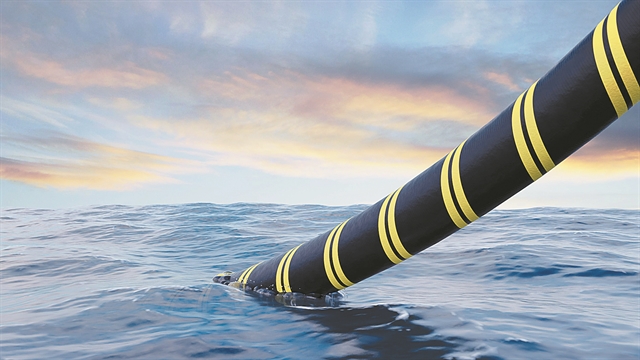After a brief lull, the controversy surrounding the Great Sea Interconnector (GSI) project, which will connect the power grids of Greece and Cyprus with undersea cable, has resurfaced, with the Cyprus finance ministry playing hardball about the finances. The government is not united on the matter, with the energy ministry supporting a more flexible approach and disapproving of finance’s hard line, because it considers GSI an infrastructural project of strategic importance.
Finance Minister Makis Keravnos, according to press reports, is refusing to sanction the €25m payment to Admie, Greece’s independent transmission system operator, who is the project promoter. The agreement between the governments of Greece and Cyprus was that they would pay Admie’s expenses for five years (total of €125m), until the interconnector is operational in 2030. This money would be raised by an additional charge on all electricity bills, something that is unlikely to go down well in Cyprus, where subscribers are constantly complaining about their high bills.
There was a condition for this payment, which Keravnos said had not been satisfied, a point he made during a teleconference with Admie, the European Commission’s directorate general for energy and the energy regulatory authorities of Cyprus (Cera) and Greece (Raek). The condition related to work in the sea that should have taken place in parallel with the manufacture of the cable by Nexans, but it was noted that no exploratory work had been done in the sea because Turkey objected, arbitrarily claiming that it would violate its continental shelf.
Admie and the Commission, according to one report, have been pressuring Raek to impose the new GSI tariff on electricity and ignore last year’s agreement between the Greece and Cyprus. It is all very bizarre. What will happen to the cable that has already been ordered and will cost an estimated €1.4 billion if Turkey continues to threaten that it would not allow any work to be done in the sea? And why is the Commission’s energy directorate-general siding with Admie and urging the Cyprus government to pay the €25m instalment, when Turkey seems set to block the project? There could be a secret understanding between Brussels and Ankara, because the EU is set to pay about €650m towards the project. Would it be backing a project, if there was a possibility that it would lead to a waste of such a big amount of money?
The finance minister is obviously not privy to such information and is taking a hard line. Has the government suddenly got cold feet about the project and is using the lack of work in the sea as an excuse to stop it happening? Keravnos has ruled out any form of state assistance for the project, while Raek, theoretically an independent authority, will do what the government tells it to do.
What happens nobody can predict. There will be another teleconference next week with the aim of finding a solution. The government has to make some kind of decision by then, but it seems unlikely it would bail out, even though it would be justified to do so given Turkey’s threatening stance.






Click here to change your cookie preferences